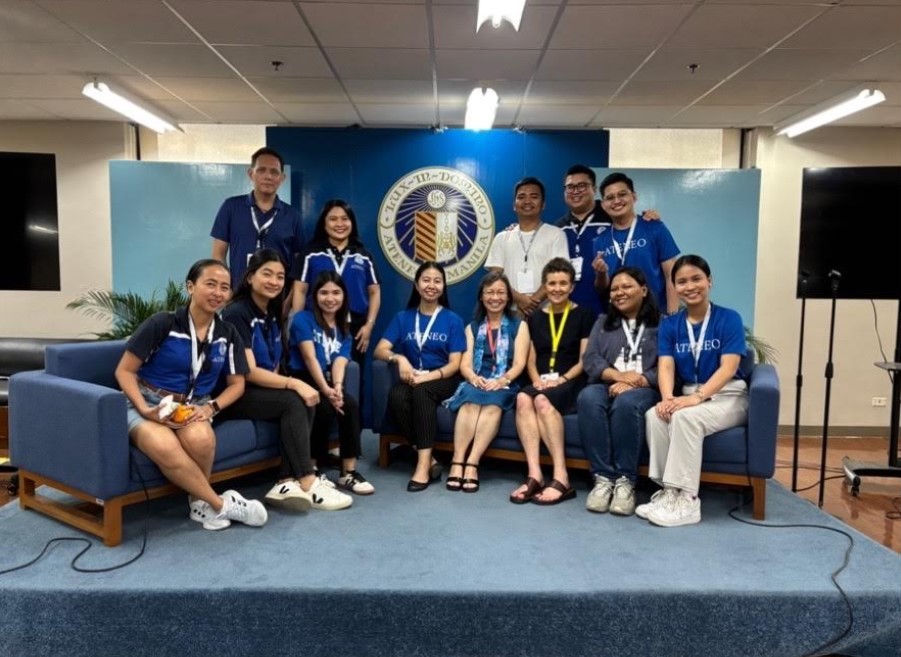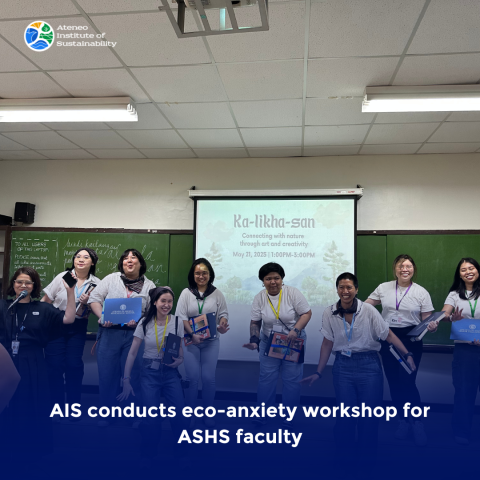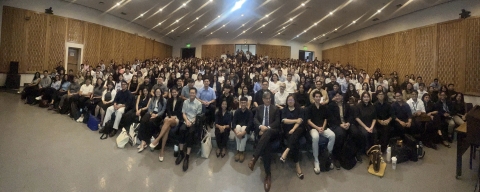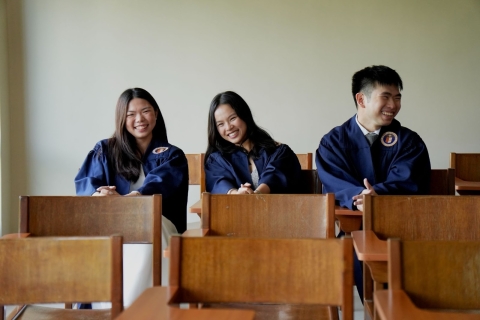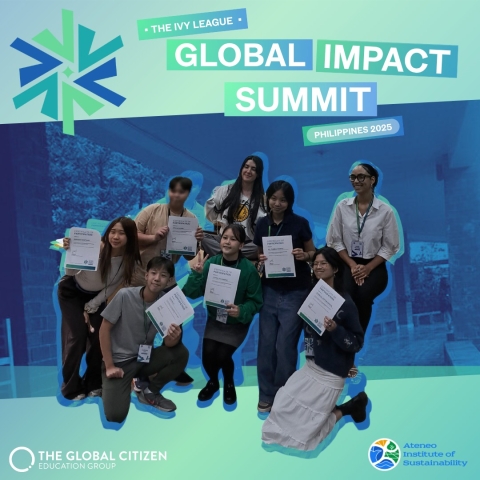Reaching the Filipino people: A post-conference forum of the 27th ICMI Study Conference
16 Mar 2025 | Shienna Marie G Amorio (PhD Math Ed)
[ The condensed version of this article has been published in the ICMI Newsletter March 2025 at the link https://www.mathunion.org/icmi/icmi-newsletter-march-2025#on-page-3. ]
The Philippine Council of Mathematics Teacher Educators (MATHTED) Inc. organized the International Commission on Mathematical Instruction (ICMI) Study 27 Post-Conference Forum held last 26th of January 2025 at Ateneo de Manila University, with the support of the Department of Mathematics and the assistance of student volunteers from among the Math Ed Eagles. This Post-Conference Forum follows the conclusion of the four-day 27th ICMI Study Conference held last 22-25 January 2025 at Ateneo. The forum, which had the theme “Innovations in Mathematics Education: Global Perspectives,” aimed to share new ideas from the Study Conference with the Philippine mathematics education community.
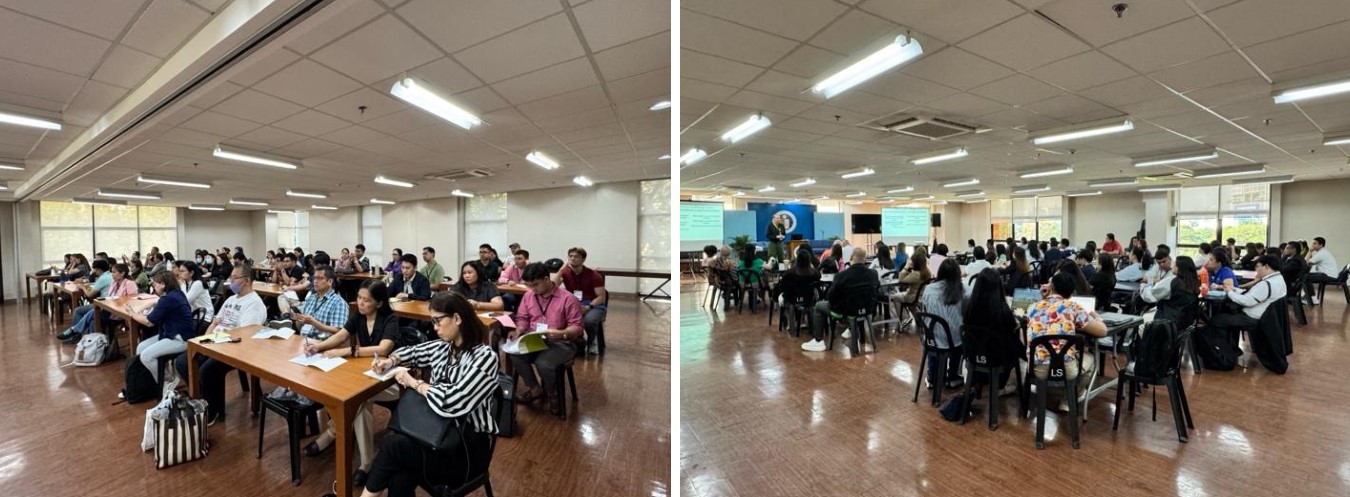
The post-conference forum chair, Hadji C. Alegre, opened the event and welcomed esteemed participants and guests from different schools across the country. Alf Coles from University of Bristol (United Kingdom) and Kate le Roux from University of Cape Town (South Africa) delivered a joint keynote address entitled, “Mathematics Education and the Socio-ecological: A Conversation - between two contexts – about access to relevant, quality mathematics education.” Alf highlighted the intricate relationship between mathematics education and the socio-ecological, presenting deliberate ways to bring context into mathematics and incorporating climate justice and sustainability within the mathematics curriculum. On the other hand, Kate focused on the innovations in the mathematics curriculum to conform to local and global relevance. She emphasized the use of the curriculum organizing principle and outlined the conditions needed to accommodate the socio-ecological challenges in mathematics education. Both speakers also cited their current research work in the World Universities Network (WUN).
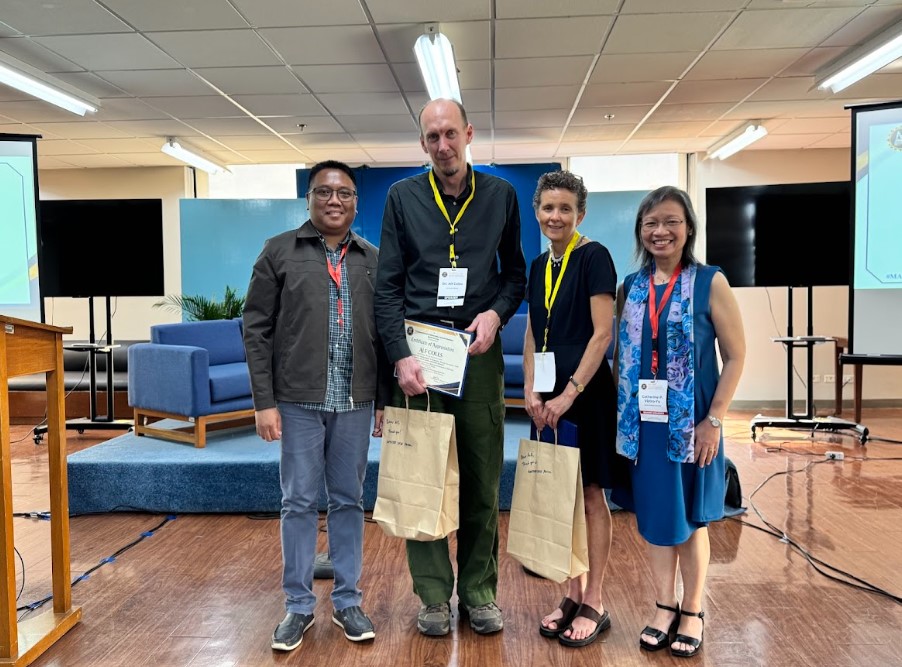
A panel discussion then followed with international speakers hailing from different universities across the globe. This included Vince Geiger from Australian Catholic University (Australia), Arindam Bose from Tata Institute of Social Sciences (India), Marcelo Borba from Sao Paolo State University (Brazil), Paola Valero from Stockholm University (Sweden) and Kate le Roux. In the first round of discussion, each of the speakers brought forward their research interests and their experiences in the field. Marcelo opened the discussion with the video festival in Brazil and noted how this event made use of the bottom-up rather than the top-down approach where developed resources come from the people. Arindam concurred and mentioned how digital games could foster meaning-making in geometry. He also added that the curriculum must be reformed such that it addresses non-comprehensibility, incorporates policies about social sensibilities and features the green curriculum with the deliberate inclusion of green habits in mathematics problems. Subsequently, Vince engaged in a discussion on critical mathematical thinking, emphasizing the relevance of incorporating sustainability considerations into real-world problem-solving scenarios that can be presented to students. Following this, Kate elaborated on her perspective on inequalities and accessibility challenges within the mathematics curriculum, classroom environment, and broader educational system, extending her analysis to encompass the socio-ecological or socio-political contexts. She also spoke about the role of language as the root of colonialism. Lastly, Paola raised the crucial but often overlooked facet of mathematics education: mathematical identities. She urged educators to meet the students where they are and understand the students’ mathematical identities before attempting to mold and teach them.
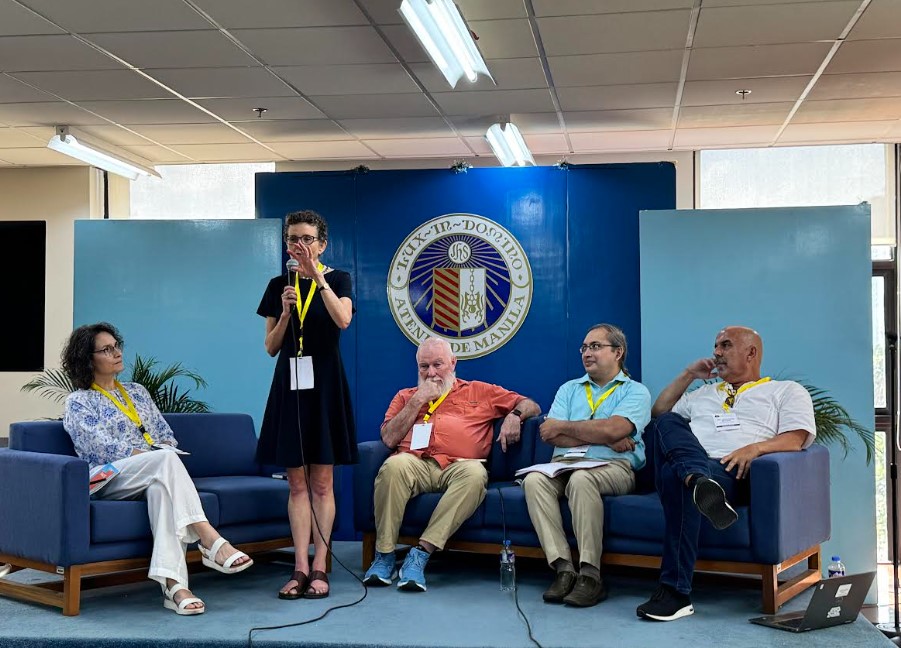
During the second round of the panel discussion, a question was posed regarding the speakers’ perspectives on the emerging trends in technology development. Paola answered with a rhetorical question about the type of technology being referred to and stated that it is the use of these technologies that should be given prime consideration. Vince concurred and raised the importance of selecting the right digital resource, and how its importance is tied to its utilization in solving the problem. Kate le Roux, on the other hand, underscored the potential accessibility issues with every technological development. On a different note, Arindam focused on the history of technology and cited hieroglyphics and Egyptian mathematics as important historical artefacts that have helped progress mathematics. This concept was further elucidated by Marcelo, who posited that mathematics is intrinsically tied to technology and that education is inherently shaped by technological advancements. He believes that as technology develops, it steers our educational trajectory toward certain directions.
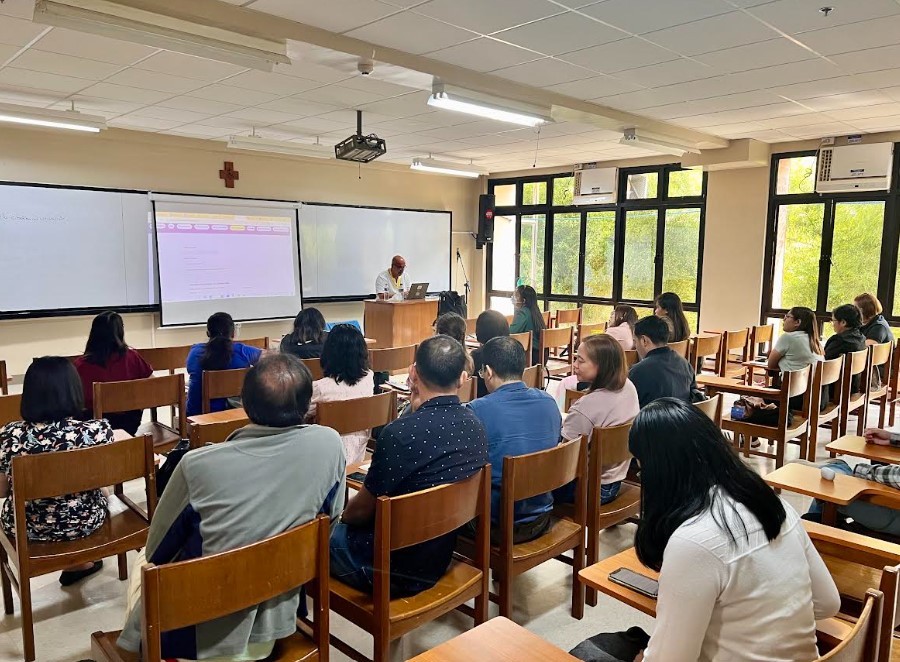
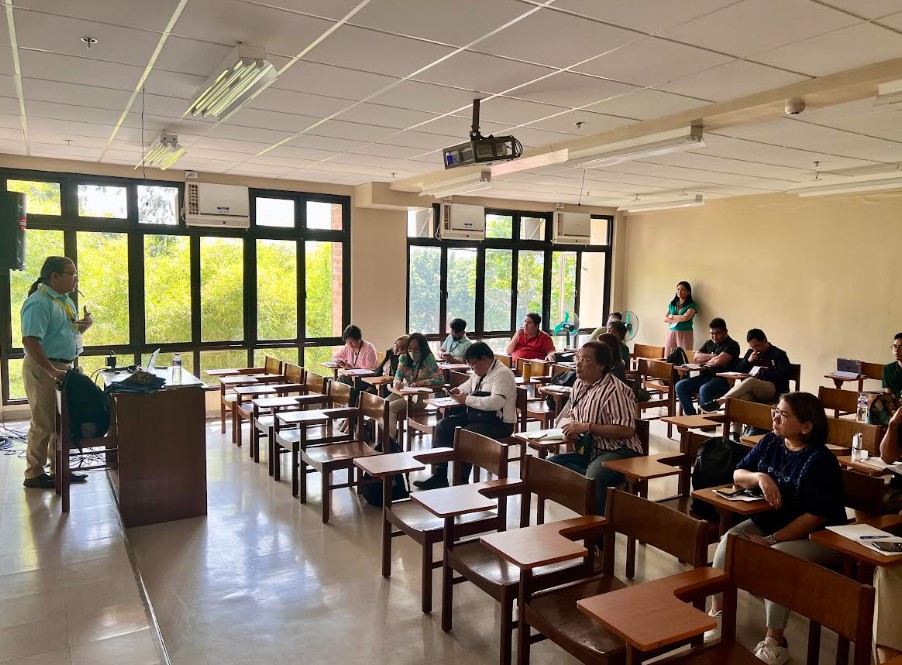
In the afternoon session, the participants were divided into five distinct break-out rooms for in-depth sessions where the invited experts facilitated discussions about their areas of research. Session A with the theme “Digital Video and Mathematical Education Festival” was facilitated by Marcelo. In this session, he introduced the mathematical education festival in which students and teachers all over the country collaborate to produce digital videos for several learning topics in mathematics. Meanwhile, Arindam in Session B, “Design-based Research: Meaningfully Using Tech Affordances for Increasing Access to Quality Education at Scale,” emphasized the need to address equity and accessibility challenges in technology and quality education. In his talk, he introduced the Connected Learning Initiative (CLIx), an initiative in their university that utilizes educational technologies in the secondary school. In Session C, “Critical Mathematical Thinking Project,” Vince discussed the project which centered around how mathematical principles are used to address real-world challenges and are utilized to develop solutions that account for the multi-layered factors concerning the socio- ecological. In Session D with the theme, “Classroom Language and Literacy Practices for Accessing, Learning and Communicating Mathematics,” Kate shared a framework for classroom language and literacy, especially in linguistically diverse classrooms. Lastly, in Session E, “Students’ Mathematical Identities: Supporting Productive Learning Narratives,” Paola explored the concept of mathematical identities. She discussed the importance of these identities to promote student engagement and bridge the cognitive with the social, the cultural and the political.
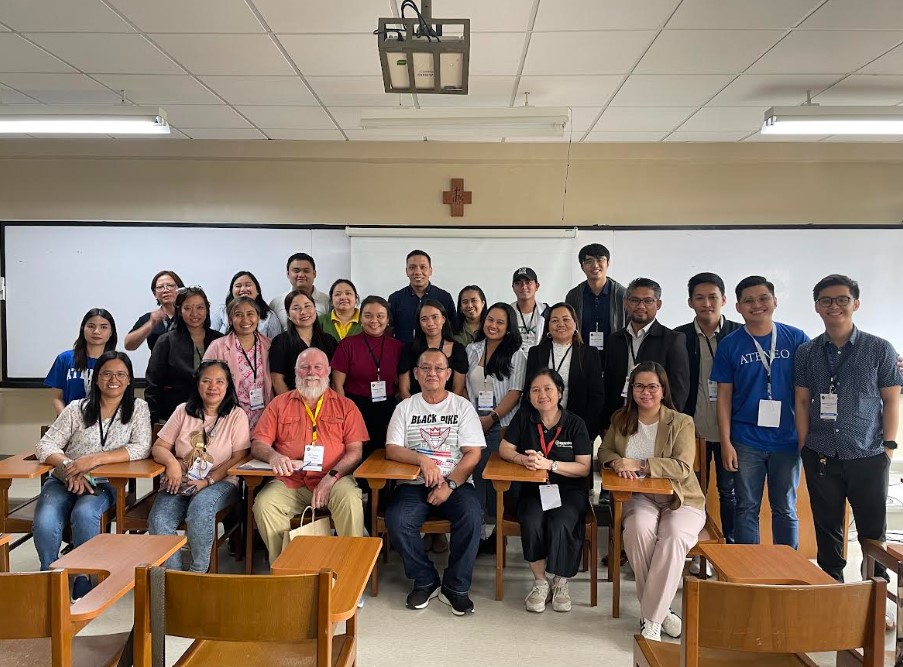
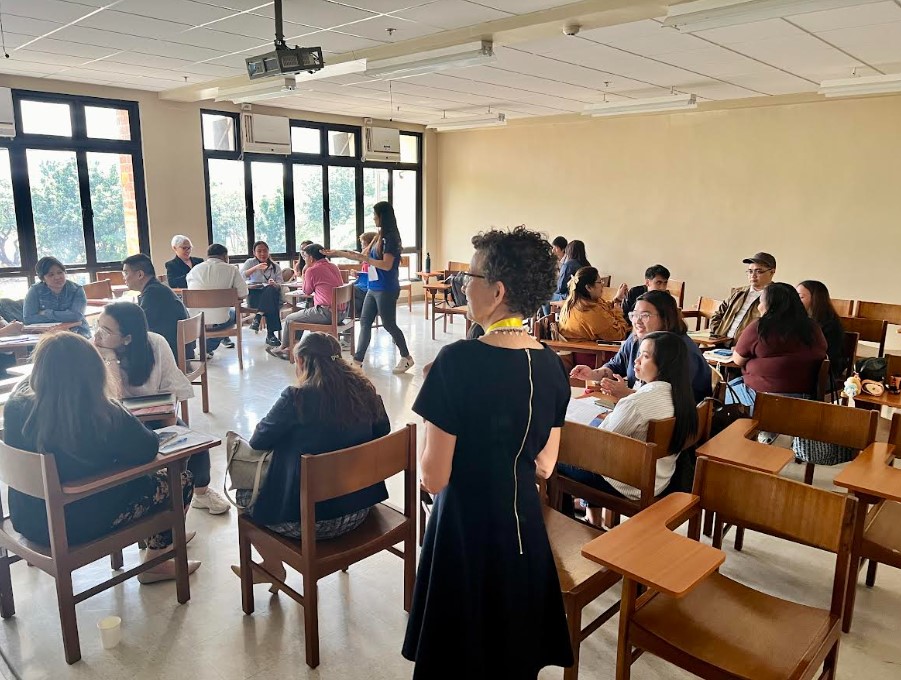
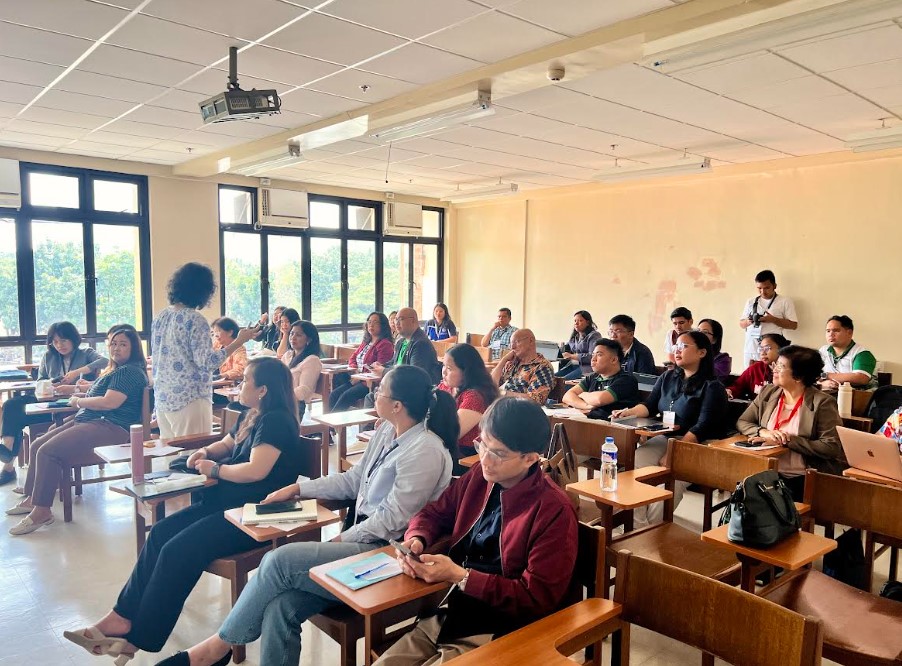
The break-out sessions brought out ideas from the different participants and provided a window to how different cultures and social climate affect and continually shape mathematics education. This was further highlighted by Catherine Vistro-Yu, MATHTED President, in her talk about future directions in mathematics education, citing the potential future directions in curriculum, pedagogy, assessment, and research. She encouraged educators to continue the practice of employing creativity and open communication with other educators in sharing effective educational strategies.
The conference culminated with reflections shared by participants assigned from different break-out rooms, as well as participants who are members and non-members of MATHTED. The summary of key take-aways were presented by Minie Rose Lapinid, MATHTED Vice-President, while Nympha Joaquin (MATHTED National Board) ended the conference with the announcement of future collaboration opportunities in the coming years.
